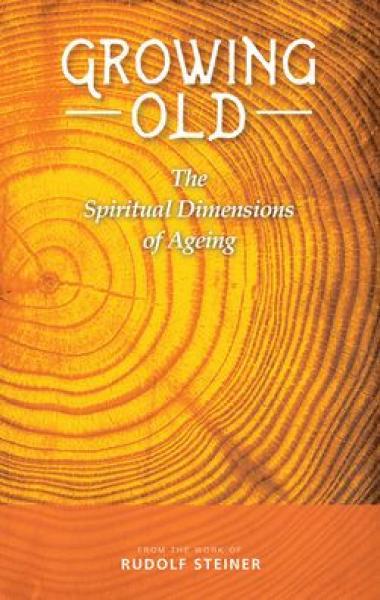Description
When are we actually "old"?
What really happens as we age?
How can we cope with old age in the best way?
Growing old is an art, and aging in the best way requires spiritual understanding. In this enlightening anthology (compiled by a director of elder care homes), comprehensive cosmological perspectives alternate with detailed observations of aging. Rudolf Steiner views aging in the context of the earthly and spiritual evolution, which encompasses all forms of existence. This book therefore begins with the essential developmental significance of aging and ends by considering human beings as joint creators in cosmic processes and having the capacity to become increasingly conscious of all that this implies.
These key texts by Rudolf Steiner show how spiritual knowledge can expand current studies of old age, the aging process, and problems that older people encounter. Issues concerning today's "aging population" can be seen in a broader context that recognizes the fruits of old age. One example of this is the productive relationship between childhood and old age--a theme throughout this volume. By growing old consciously, we can view aging not just as a period of physical decline but, more important, as a time for actively participating in shaping life. We can begin to find greater meaning in the process of growing old.
CHAPTERS
The Core Messages of Aging
- Ageing as the Foundation of All Evolution
- The Meaning of Ageing
Fundamental Principles of Gerontology
- What the Different Life Phases Signify for Old Age
- Interdependency of Youth and Age
Aging as a Developmental Process
- Ageing throughout History
- Transformation Processes in the Human Soul
Aging: The Risks and Opportunities
- The Art of Growing Old
- Biographical Laws
- Typical Age-related Infrimities: Dementia and Sclorosis
- Pathological Age-related Symptoms
- Changes in the Interplay of Different levels of Human Nature
Old Age and Death
- Why We Die
- A Long Life or and Early Death
- Karmic Laws
- Lucifer and Ahriman
- The Corpse as Ferment
- Living with the Dead
Growing Old: A Challenge for Education
- Unbornhood: The Pre-birth Journey
- Suggestions for Upbringing and Education
Cosmological Dimensions of Aging
- The Ageing of the Earth and the Mission of Human Beings
- Becoming Ever More Human, and Knowledge of Christ
Modern Gerontology, a Survey
Notes
Sources
Rudolf Steiner (1861-1925) was born in the small village of Kraljevec, Austro-Hungarian Empire (now in Croatia), where he grew up (see right). As a young man, he lived in Weimar and Berlin, where he became a well-published scientific, literary, and philosophical scholar, known especially for his work with Goethe's scientific writings. At the beginning of the twentieth century, he began to develop his early philosophical principles into an approach to systematic research into psychological and spiritual phenomena. Formally beginning his spiritual teaching career under the auspices of the Theosophical Society, Steiner came to use the term Anthroposophy (and spiritual science) for his philosophy, spiritual research, and findings. The influence of Steiner's multifaceted genius has led to innovative and holistic approaches in medicine, various therapies, philosophy, religious renewal, Waldorf education, education for special needs, threefold economics, biodynamic agriculture, Goethean science, architecture, and the arts of drama, speech, and eurythmy. In 1924, Rudolf Steiner founded the General Anthroposophical Society, which today has branches throughout the world. He died in Dornach, Switzerland.
Matthew Barton is a translator, editor, teacher, and poet, and taught kindergarten for many years at the Bristol Waldorf School. His first collection of poems was Learning To Row (1999). He has won numerous prizes for his work, including an Arts Council Writer's Award and a Hawthornden Fellowship.
Product Details
- Rudolf Steiner Press Brand
- Jul 22, 2019 Pub Date:
- 1855845628 ISBN-10:
- 9781855845626 ISBN-13:
- 240 Pages
- 8.4 in * 5.4 in * 0.7 in Dimensions:
- 1 lb Weight:




